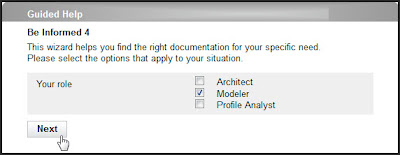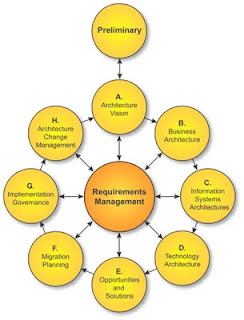Improve Product and Brand engagement through smart documentation - A White Paper about the challenge of creating user-centric documentation
For most product manufacturers, delivering
adequate documentation is a constant challenge. The increasing complexity of
products and the stricter regulations for product documentation often lead to
extensive documentation sets with 500+ pages manuals on-line or in print. The
question is: how effective is all this documentation?
Smart documentation leads users to success and satisfaction. These are the users who share their positive experience with family and friends, and convince them to become customers in turn. Using semantic technology, we can create the smart documentation that guides each customer through the actions, decisions, and choices they can take to maximize their user experience. Semantic Technology encodes meaning and separates it from content and application codes.

Figure 3. Use semantic technology to create models of the documentation
Implementing semantic technology is a logical next step in the evolution of documentation. Semantic technology allows us to make customer support part of the product in a seamless and effective manner. This makes our products better and improves customer engagement with products and brands.
Smart, user-centric documentation
Users can be overwhelmed by long, jargon-loaded user manuals, and frustrated by a lack of clear answers. When customers don’t find a solution, blame inevitably falls on the product and the company. Bad documentation - incomplete, unclear, out of date - creates a negative engagement with products and brands.
Figure 1. Smarter documentation asks users what they need to know
Smart documentation leads users to success and satisfaction. These are the users who share their positive experience with family and friends, and convince them to become customers in turn. Using semantic technology, we can create the smart documentation that guides each customer through the actions, decisions, and choices they can take to maximize their user experience. Semantic Technology encodes meaning and separates it from content and application codes.
Business case
Semantic technology can also transform the documentation process. The user manual is no longer created after the fact, but built in tandem with the product. Changes in content or structure are tested and published on the fly, because the documentation is instantly executable in a web browser. Since the gap between development and documentation disappears, documentation is not frozen describing last year’s model.
Figure 2. Documentation in the product life cycle
Documentation teams and support desks can deliver real value to customers, instead of chasing support tickets. The total costs of documentation will decrease and become more predictable as a result of an optimized process for various purposes and audiences throughout the whole product life cycle.
Using semantic technology
With semantic technology we can describe the functionality, processes and context of a system or device in a model, add meaning to concepts and relations and represent knowledge separately from documents, data and programming code. It enables us to add a knowledge layer on top of it to support the context specific needs of actors in the product lifecycle. By doing so, all output forms can be combined in one smart user assistant.

Figure 3. Use semantic technology to create models of the documentation
Implementing semantic technology is a logical next step in the evolution of documentation. Semantic technology allows us to make customer support part of the product in a seamless and effective manner. This makes our products better and improves customer engagement with products and brands.
Get ready for the next wave in documentation
At the STC Summit 2013 in Atlanta, I will demonstrate how we can use semantic technology to create process-driven documentation. I will do this by live modeling with a semantic toolset. As the models in the semantic environment are instantly executable, we can work together on some documentation concepts, change the models and review the results in a web browser. The session will be highly interactive with plenty of opportunities to influence the modeling process and simulate specific situations.
When: May 6th, 2:00 pm (EDT)
Level: Advanced
When: May 6th, 2:00 pm (EDT)
Level: Advanced
Download the white paper
The white paper “Improve Product and Brand engagement through smart documentation” is available for download on: http://info.beinformed.com/stc13 .



Comments
Very Useful information Thank you!!
With over 100,000 hrs of development in deep technology domains, TWB_ is the undisputed leader in creating
product documentation for customers worldwide. That is how TWB_ started in 2006. TWB_’s first customer was
a then $40Billion American behemoth migrating it’s JD Edwards ERP. Shift_ Product Documentation| Shift_ Support Knowledge Base
Informativ post.Thanks for sharing. Token Development Company |
NFT Gaming Platform Development Company |
Token Development Services |
ICO Development Company |
Cryptocurrency Development Services
ICO Development Company |
White Paper Writing Services |
Stablecoin Development Company |
NFT Game Development Company |
NFT Token Development Company |